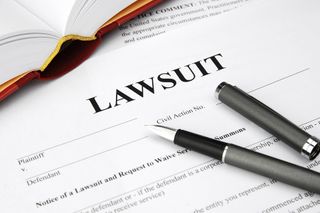Microsoft, Apple and more accused of benefiting from child labour
International Rights Advocates say tech giants are aiding the use of child labour in DRC to mine cobalt

A human-rights organisation has filed a class-action lawsuit on behalf of 13 children killed or injured mining cobalt in the Democratic Republic of Congo (DRC), naming in the suit Apple, Alphabet, Dell, Microsoft and Tesla.
The lawsuit from International Rights Advocates said it has evidence that those companies knowingly "aided and abetted the mines" where children are paid a dollar a day to work in dangerous conditions, and are killed and injured when mine tunnels and walls collapse.
Used for lithium-ion batteries in tech devices and electric cars, cobalt is one of several so-called conflict minerals that is needed by the tech industry. As much as 60% of the world's cobalt is mined in DRC, but its mines also produce tin, tantalum, and tungsten, which are also used by the tech industry. Amid conflict in the DRC, people are forced into working mines, including children.
This issue isn't new, with human-rights organisations long calling for action from the tech industry. That led to the 2010 Franklin-Dodd Act in the US, which required American firms to reveal details about their supply chains and to actively ensure they weren't using conflict minerals — which some critics say has only hurt local miners, rather than disrupted the flow of funding to militias. Plus, cobalt isn't included as a conflict mineral under that law.
The lawsuit from International Rights Advocates suggests not enough progress has been made on conflict minerals. "The tech boom has caused an explosion in demand for cobalt, but in one of the most extreme contrasts imaginable, cobalt is mined in the DRC under extremely dangerous stone age conditions by children paid a dollar or two a day to supply cobalt for the expensive gadgets made by some of the richest companies in the world," a statement from IRAdvocates says.
In the documents filed to the court, IRAdvocates details with photos the deaths and injuries suffered by plaintiffs and their children, including limbs crushed by falling walls and tunnels, including one who was left paralysed. Some bodies haven't been recovered after tunnels collapse, and some of the victims are as young as six years old.
The group adds: "Rather than step up to help these children with a negligible portion of their vast wealth and power, these companies do nothing but continue to benefit from cheap cobalt mined by kids robbed of their childhoods, their health, and for far too many, their lives."
Get the ITPro. daily newsletter
Receive our latest news, industry updates, featured resources and more. Sign up today to receive our FREE report on AI cyber crime & security - newly updated for 2024.
The lawsuit is filed in the US under the Trafficking Victims Protection Reauthorisation Act, with the suit also claiming under common law unjust enrichment, negligent supervision, and intentional infliction of emotional distress. While those five firms are named in the suit, IRAdvocates is investigating further companies, and may add them as well.
According to the documents, the tech companies are provided cobalt by Chinese miner Huayou Cobalt as well as British-owned Glencore. The latter told the Financial Times it does not mine any cobalt, instead recovering it from the copper industry, and last week joined the Responsible Sourcing Blockchain Network.
The tech companies named in the suit have claimed to be making efforts to address these issues. Microsoft has been a part of a "Child out of Mining" project in DRC since 2014, while Google has had various projects including a clean power initiative in the country, supplier code of conduct, and even a VR experience to "reveal the realities of mining". As required by law, Apple publishes a conflict minerals report, last year removing five suppliers for failing to participate in a third-party audit. "As part of its commitment to help to safeguard the well-being of people involved in its supply chain, Apple has integrated human rights impact measurements into its overall minerals due diligence program," that report read, claiming it goes beyond legal requirements.
The lawsuit alleges such activities are little more than "corporate coverup".
A Microsoft spokesperson said: "We have nothing to share as this is an ongoing legal case." Apple said: “Apple is deeply committed to the responsible sourcing of materials that go into our products. We’ve led the industry by establishing the strictest standards for our suppliers and are constantly working to raise the bar for ourselves, and the industry. In 2014, we were the first to start mapping our cobalt supply chain to the mine level and since 2016, we have published a full list of our identified cobalt refiners every year, 100% of which are participating in independent third party audits. If a refiner is unable or unwilling to meet our standards, they will be removed from our supply chain. We’ve removed six cobalt refiners in 2019.”
Alphabet, Dell, and Tesla were contacted for comment but have yet to reply at the time of publishing.




